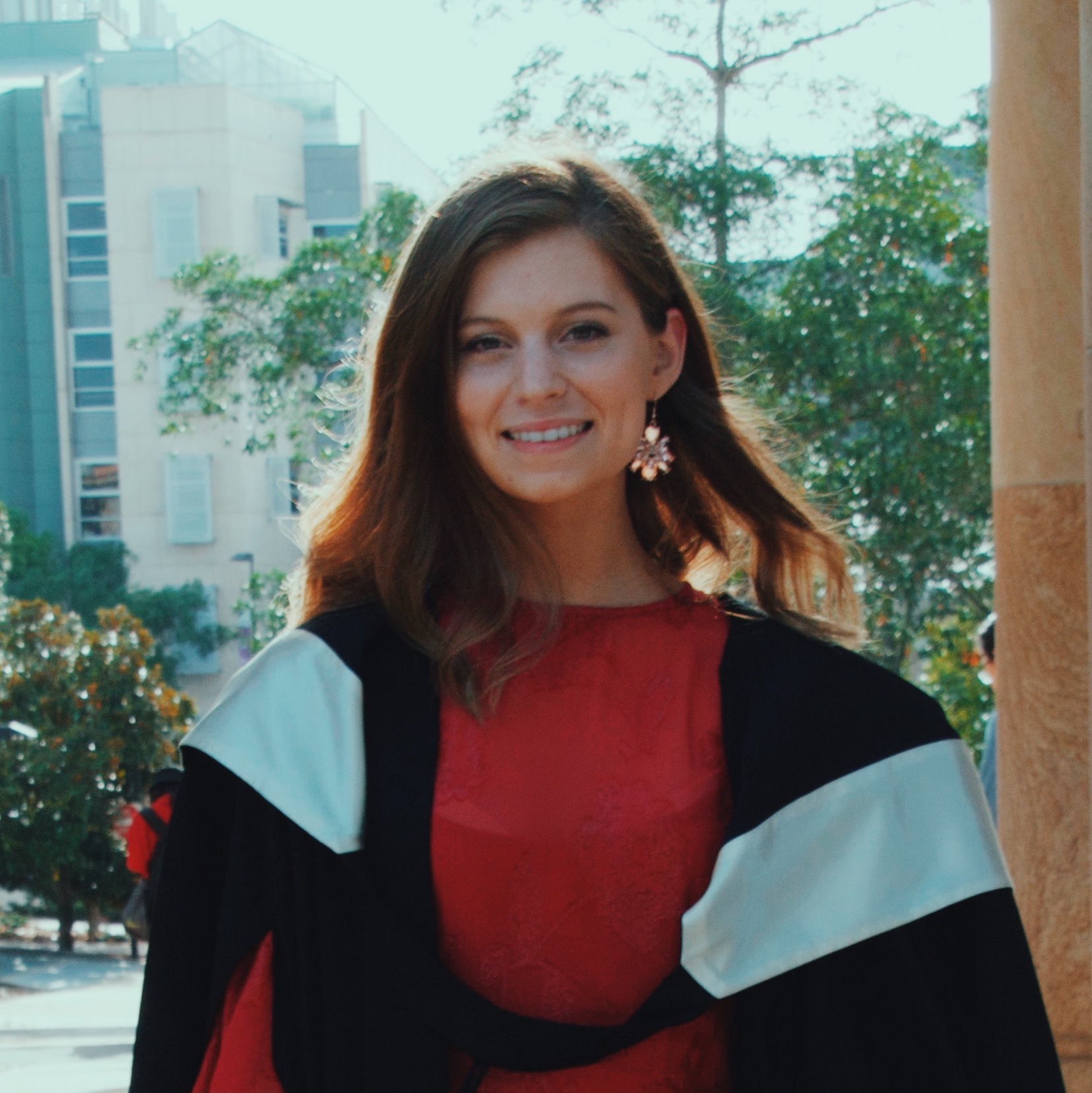What can you do with an Honours degree from the Faculty of Humanities and Social Sciences?
Our graduates end up all over the globe undertaking PhD's, working for governments, the private sector, non-for-profits, galleries, they go on to do teaching, researching, being project managers and undertaking many other roles! Having your Honours gives you a step up from the competition and opens you up to a world of opportunities.
Check out some of our graduates and be inspired to undertake 'One year. One extraordinary research experience'.
1. Georgia Young, BA (Hons) in Sociology
 What was the best thing about your Honours program at UQ?
What was the best thing about your Honours program at UQ?
The best thing about undertaking an Honours degree is the opportunity to conduct real world research on a topic that you’re passionate about. Throughout my undergraduate degree, I was always interested in gender studies, and it was exciting to be able to carry out gender research that was novel and meaningful. Beginning my Honours year with a research idea, and working to transform it into a multifaceted thesis by the end of the year was a challenging but incredible journey. It was an amazing feeling to submit my final thesis, and it’s a piece of work I’ll always be proud to have accomplished.
How did your study help you get to your current role, and what does your current role involve?
I currently work for Brisbane City Council as a Policy Adviser. Each day I draw upon the research and analytical skills I practiced during my Honours degree. Being able to synthesise and understand research and then rewrite it in simpler terms is a significant part of my work. This is a skill that I had the opportunity to develop throughout my Honours year, both in my research thesis and coursework. After my interview for this position, I received the feedback that my Honours degree was what set me apart from other applicants.
What challenges did you come across in your degree, and how did you overcome them?
Comprehending my chosen theory at first was challenging. I found it quite complex and started to worry I wouldn’t be able to understand it fully. I overcame this by taking time to familiarise myself with the theory. I made sure I didn’t rush myself or move onto more complex parts of the Iiterature until I understood the basics. Searching for practical and real world examples of the theory also helped me learn too.
What advice would you give to students in the same discipline as you studied?
Researching and writing your thesis is a big task. A key tip is to be reasonable about the scope of your research - you can’t answer every question and solve every problem! Regularly remind yourself of the intent of your thesis and the boundaries of your research. Stay social during your Honours year. Working on your own research project can sometimes be isolating, so it’s great to get to know other students in your Honours program and share this experience with them.
